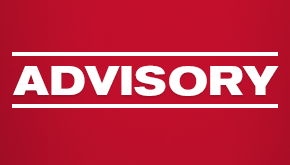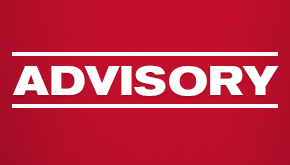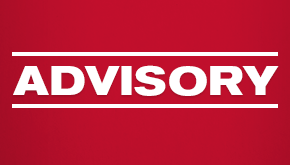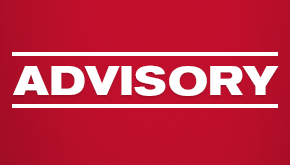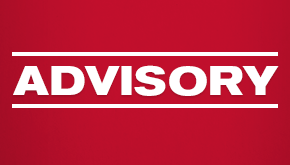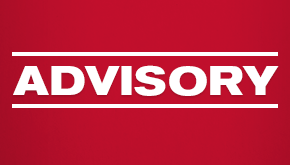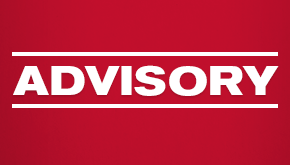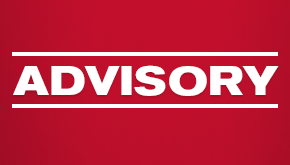EU Establishes New Regime to Regulate Digital Platforms
On 18 July 2022, the European Union (EU) Council formally adopted the Digital Markets Act (DMA) which establishes for the first time in the EU an ex-ante system of regulation to address anticompetitive behaviour of major digital platforms.
The DMA will have widespread implications for the way large digital platforms conduct their business in the EU when the rules come into force in April next year. Those digital platforms affected should review their business policies and conduct as a matter of priority to ensure compliance with the new rules, or potentially face large fines and other sanctions.
Purpose
The DMA establishes a level playing field for major online platforms (“gatekeepers”) to foster innovation, growth and competitiveness online, at an EU level and globally. The new rules also provide key protections for all users of those platforms.
Gatekeepers (which are defined in the legislation and are discussed below) provide gateways for a large number of business users to reach end users in the EU and in different markets. They therefore hold a key position in connecting business users to their customers. Any unfair restriction or exclusionary conduct create anticompetitive bottlenecks which distort digital markets.
The adverse impact of unfair practices of gatekeepers on the internal market in foreclosing competitors has been of particular concern to EU legislators as the power of digital platforms further develops. The need to address this issue therefore led EU legislators to enact the DMA.
The DMA will also be accompanied by further legislation called the Digital Services Act (DSA) which is due to be formally adopted by the EU Council in September. The DSA will regulate the content posted on and conduct of a wider range of the digital online providers and platforms. Together, the DMA and the DSA put in place a comprehensive system of regulation for online providers.
History
Since the adoption of the Electronic Commerce Directive in 2000, digital technologies, business models and services have changed at an unprecedented pace, and there was a need for the EU to regulate the digital space and to address the negative effects arising from certain online practices by digital gatekeepers to the EU single market. On 15 December 2020, the EU Commission published its proposed DMA (alongside the proposed DSA). Together, the DMA and DSA outline a first comprehensive rulebook to protect users while supporting innovation in the digital economy.
The DMA tackles unfair practices by gatekeepers which do not fall within the scope of the existing competition rules and/or cannot effectively be tackled by them. It differs from the DSA as it only applies to large companies which are classified as gatekeepers. It is designed to complement current competition rules with the intention of ensuring gatekeepers engage in “fair and contestable market practices”. Final legal text of the DMA is likely to be published in the EU’s Official Journal by October 2022, and its provisions will come into force by April 2023. The DSA is expected to be adopted by the Council in September 2022 and is aimed to create a safer digital space where the fundamental rights of all users of digital services are protected without fear of manipulative algorithms or illegal goods and content.
New Standards of Conduct
The DMA places certain obligations upon gatekeepers making them responsible for their online practices to ensure that none of them abuse their market power. The EU Commission will be tasked with enforcing the new rules.
Any large online platform identified as a gatekeeper will have six months to comply with the DMA, and for any infringement, the EU Commission could impose interim penalties and fines of up to 10% of a company's worldwide turnover, or 20% of such turnover, in the event of repeated infringements. In cases where there is a systematic infringement of the DMA rules, defined as one where a company violates the rules at least three times in eight years, the European Commission is empowered to open a market investigation and impose behavioural or structural remedies necessary to ensure the effectiveness of the obligations, including a ban on further acquisitions relevant to the infringement.
Who is a Gatekeeper?
Under the DMA, a gatekeeper is defined as a provider of core platform services such as: online intermediation services, online search engines, online social networking services, video-sharing platform services, number-independent interpersonal communication services, operating systems, cloud computing services and advertising services, including any advertising networks, exchanges and any other advertising intermediation services.
However, a provider of core platform services will be only designated as a gatekeeper if it meets the following threshold and has a significant impact on three main cumulative criteria that bring a company under the scope of the DMA:
(i)A size that impacts the internal market: This is presumed where the company achieves an annual EEA turnover equal to or above €6.5 billion in the last three financial years, or where the average market capitalization or the equivalent fair market value of the company amounted to at least €6.5 billion in the last financial year, and it provides a core platform service in at least three EU member states.
(ii)It operates a core platform service which controls an important gateway for business users to reach end users: This is presumed where the company provides a core platform service that has more than 45 million monthly active end users established or located in the EU and more than 10,000 yearly active business users established in the EU in the last financial year.
(iii) It enjoys an entrenched and durable position in its operations: It is presumed that the company enjoys such a position, or it is foreseeable that it will enjoy such a position in the near future, if it meets the above criteria in each of the last three financial years.
The above definition of gatekeeper is not exhaustive, and the EU Commission can take into account other criteria if it feels appropriate in designating a platform as a gatekeeper for the purpose of the legislation. Where a provider of core platform services meets all the thresholds, it shall notify the Commission within three months and provide it with the relevant information.
Gatekeepers’ Practices
Unfair practices of gatekeepers and their new obligations which are prohibited by the DMA are set out in Articles 5 and 6 of DMA. Examples for gatekeepers’ high-level obligations imposed include:
- ensuring unsubscribing from online platform services is as easy as subscribing;
- ensuring that the basic functionalities of instant messaging services are interoperable (i.e., by enabling users to exchange messages and files across messaging apps);
- giving business users access to their marketing or advertising performance data upon the platform which they are listed; and
- notifying the EU Commission of their proposed merger with another provider of core platform services or other services in the digital sector or which enable the collection of data irrespective of whether it is notifiable under EU Merger Regulation or national merger law.
Gatekeeper No-Nos
Gatekeepers will no longer be allowed to:
- self-preference their own products or services over those of others;
- preinstall certain apps or software, or prevent users from easily uninstalling these apps or software;
- require that software is installed by default when installing an operating system;
- prevent developers from using third-party payment platforms for app sales; or
- share private data collected during a service with other businesses.
The EU Commission, in close cooperation with authorities in the EU member states, will be the sole enforcer of the DMA rules. The DMA gives the Commission the power to request for information or interviews backed by penalties for noncompliance, conduct onsite inspections and carry out market investigation that will ensure an ongoing monitoring of the obligations set out in the regulation.
If you have any questions regarding the new set of rules, please contact your regular AT lawyer or one of the authors listed below.



